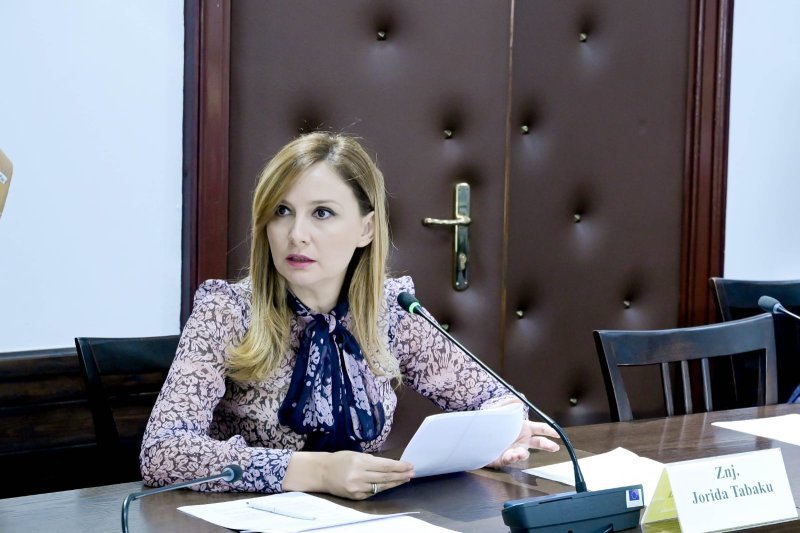Democrat Raises Alarm of Inflation Putting more Pressure on Albanians
MP of the Democratic Party (DP), Jorida Tabaku has raised Wednesday the concern that increased inflation due to Ukraine’s invasion by Russia will put more economic pressure on Albanian families, considering the low salaries and high poverty.
In her speech related to the World Bank report in the Economy and Finance Commission, the Democrat that the inflation rate only in poor households is increased by 1% in a fair way, affecting the reduction of those few incomes in the pockets of Albanian households living below the subsistence minimum of 5 USD per day.
Among other things, MP Tabaku said in reading her report regarding the report of the Bank of Albania that major international institutions such as the IMF and the WB have raised concerns about public debt and also the increase in PPP spending.
"Inflation and its shock became stronger with the start of the war in Ukraine and this accompanied by defects in the supply chain has produced an inflation estimated at 6.3% for April 2022 (from year to year). Although we have such pressures The Bank of Albania has been shown to be correct in the measures taken, although these pressures, given the low salaries and high poverty, will create even greater pressures for the citizens.
The situation is problematic coming from Public Debt, she continued, if here we will calculate the data of PPPs, ie hidden debt, then we will be dealing with a real Public Debt within the limits of 100% of GDP. The situation is aggravated even more if we take into account that interest rates will increase and consequently we will pay more interest on the principal we have received for our Eurobonds.
Despite the IMF's constant warnings about government spending and borrowing, we highlight the IMF's ongoing advice to abandon high-risk projects such as PPPs that are hidden debt; the government has continued to address this issue not with proper financial conservatism. Unfortunately, the Bank of Albania has not been involved as expected by an independent institution in relation to public debt and above all macroeconomic factors.
The same situation was observed during the pandemic and economic assistance of the Albanian government where the fund for the COVID-19 pandemic based on the sovereign guarantee was passed almost completely only to the companies that have benefited from PPPs and their contracts.
This situation has produced less revenue for consumers and businesses on the other hand inflationary pressures that have begun to be felt in our economy since the beginning of last summer as a result of the supply chain pushed a frenetic rise in prices. In these conditions, the Albanian government decided to take a large loan in the form of EUROBOND.
Despite the IMF's constant warnings about government spending and borrowing, we highlight the IMF's ongoing advice to abandon high-risk projects such as PPPs that are hidden debt; the government has continued to address this issue not with proper financial conservatism. Unfortunately, the Bank of Albania has not been involved as expected from an independent institution in relation to public debt and above all macroeconomic factors", said Tabaku.













